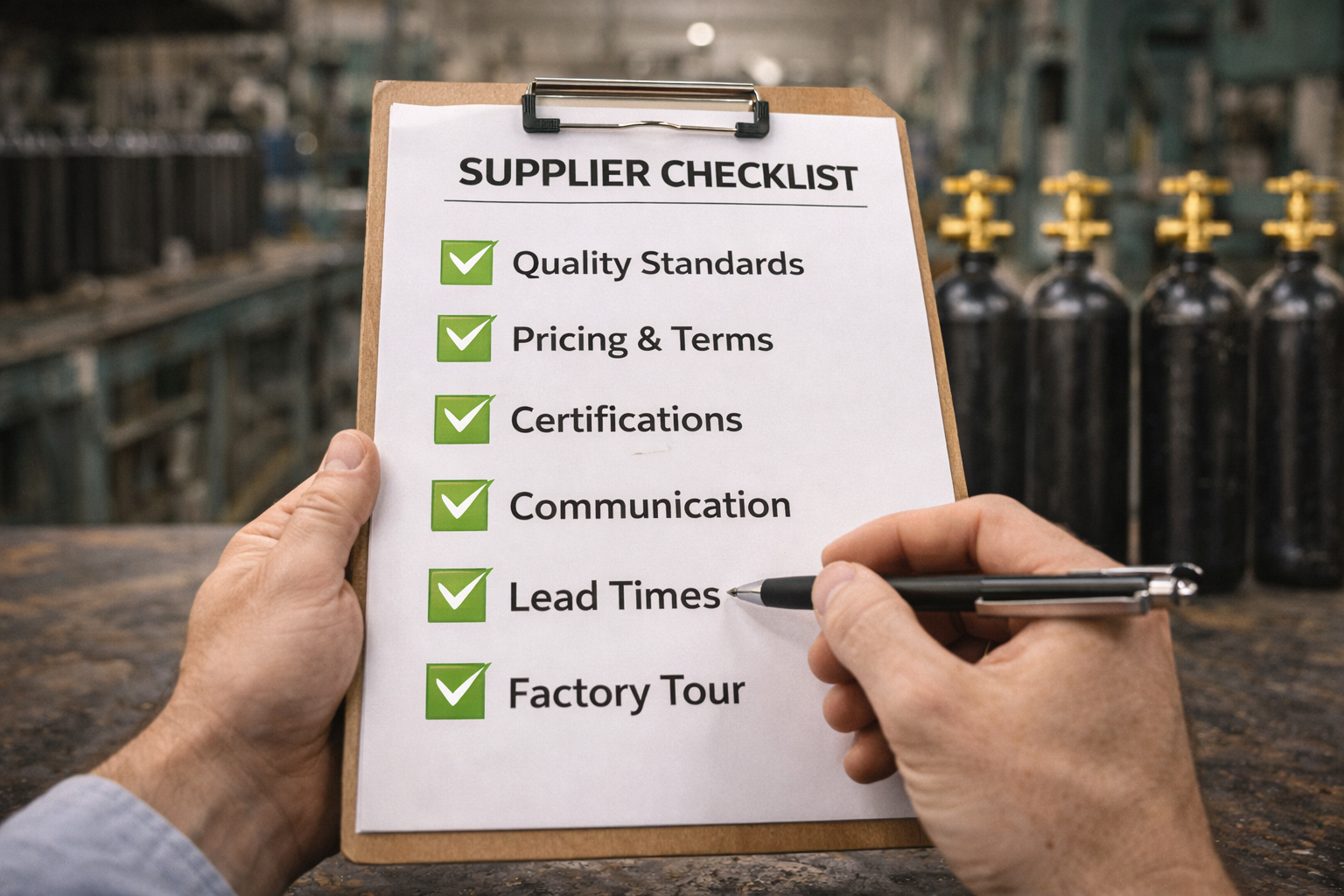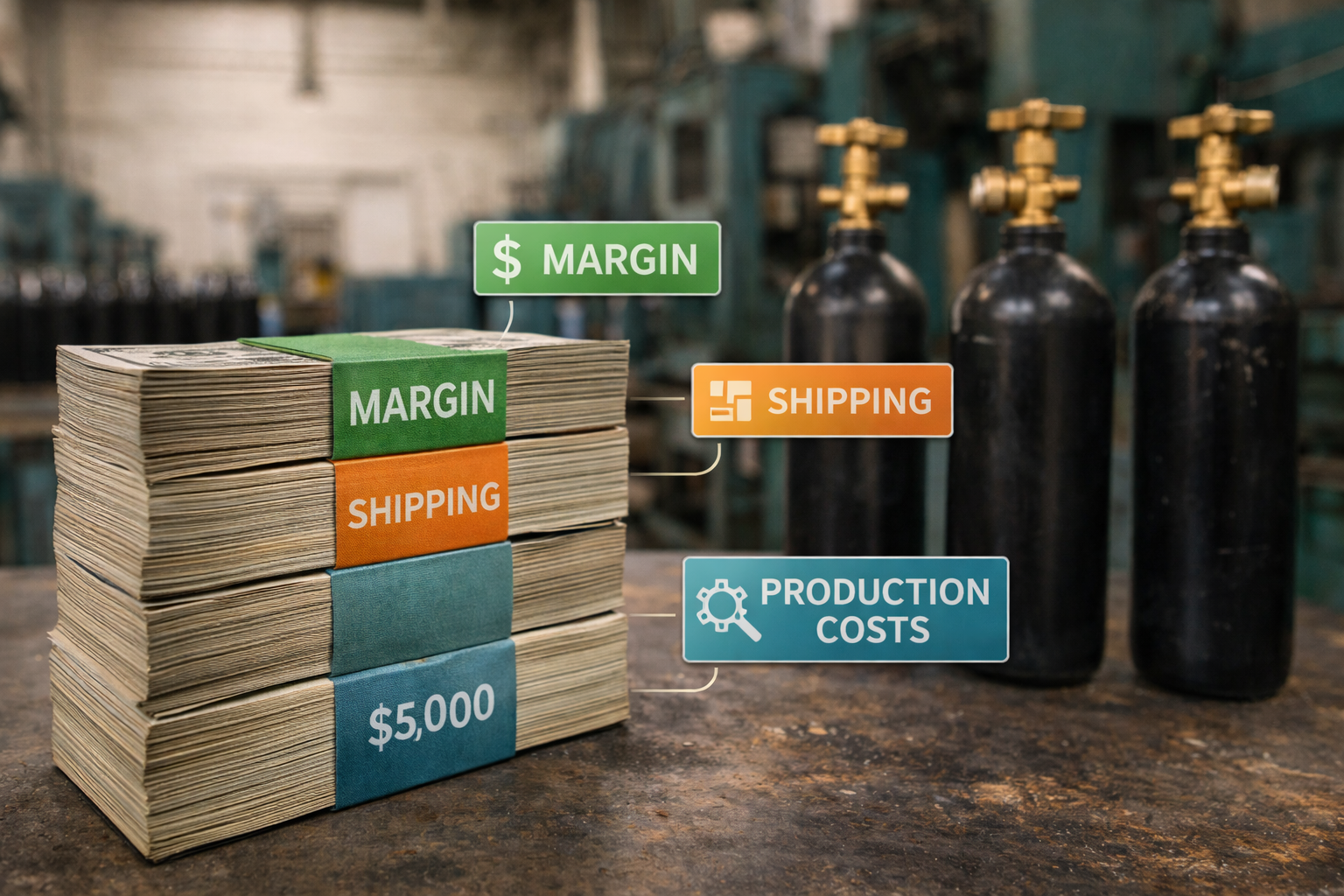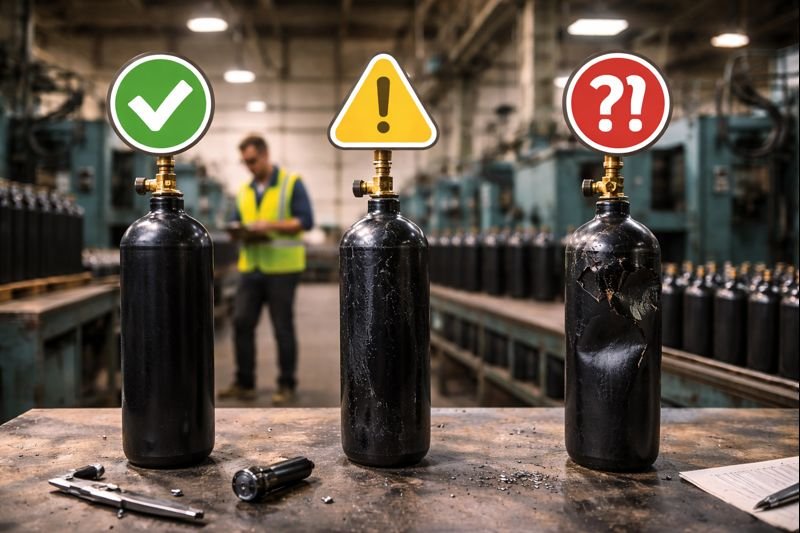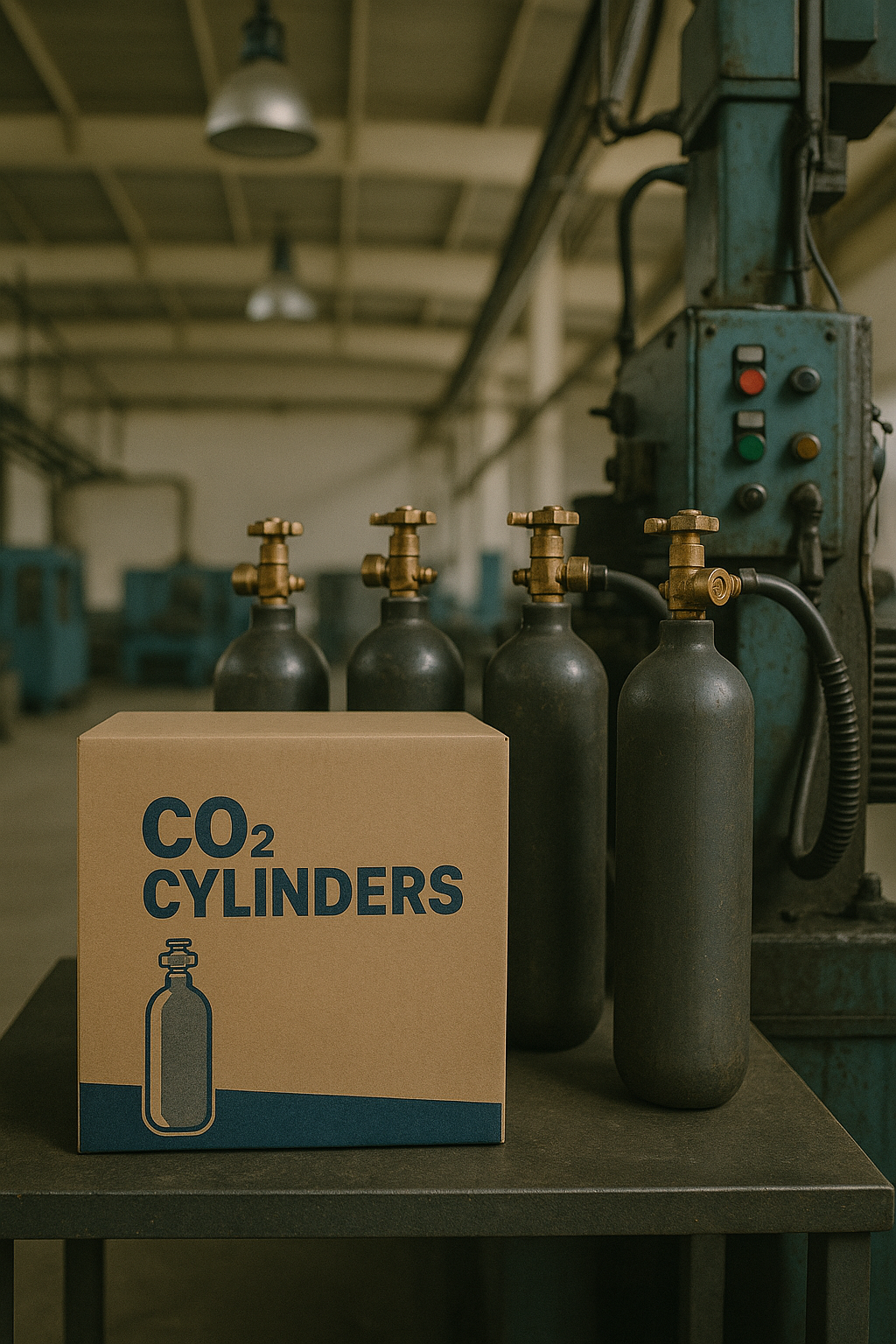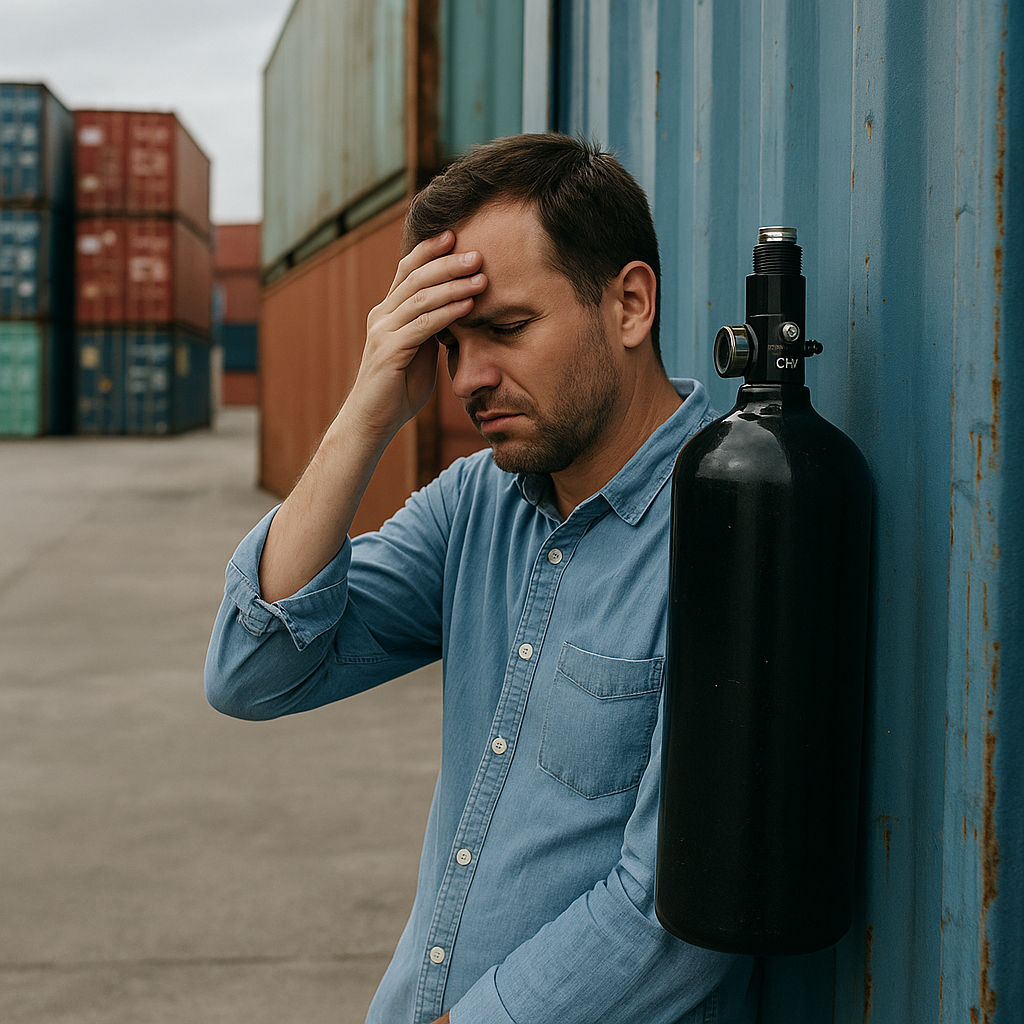Ever ordered CO2 cylinders that didn’t fit your soda machine, kegerator, or regulator? Valve mismatch is one of the top reasons for returns and system leaks.
To choose the right CO2 cylinder valve for beverage use, match your local connection standard, confirm pressure compatibility, and check the sealing type and thread size required by your beverage system.
Even with the best gas quality, the wrong valve type can ruin your whole dispensing setup. Let’s break down how to avoid this common but costly mistake—especially when importing from overseas.
Table of Contents
Why does valve type matter in beverage gas cylinders?
The valve is your cylinder’s handshake with the rest of your system.
If the valve thread, pressure, or sealing type doesn’t match your regulator or beverage system, gas will leak—or won’t flow at all.
What can go wrong with the wrong valve?
- Incompatible threads: Won’t screw into regulator
- Wrong pressure rating: Dangerous or non-functional
- Non-food-grade material: Risks contamination
- Wrong sealing method: Causes slow leaks or loose fit
What are the most common CO2 valve types in beverage applications?
Each region and application has its preferred valve standards.
Most beverage CO2 cylinders use either standard U.S. CGA320, European W21.8, or a customized soda machine-compatible valve.
Valve types comparison table
| Valve Type | Region/Use Case | Thread Type | Application | Notes |
| CGA320 | United States | Straight thread | Kegerators, soda machines, bars | Most common in North America |
| W21.8-14 | Europe, Australia | Tapered thread | Beverage dispensers, commercial soda | Used in EU-certified cylinders |
| TR21x4 | SodaStream, portable | External thread | Small soda gas cartridges | Requires adapter in many refill systems |
| M18x1.5 | Custom homebrew | Metric thread | Kegs, beer carbonation systems | May vary by brand or batch |
At Alizee, we help our clients match their regional standards and offer valve replacements or custom fittings before shipping.
How to select the right valve for your business?
It’s not just about matching a thread—you need to think about pressure, compatibility, and long-term usability.
The right CO2 cylinder valve must be food-safe, pressure-rated, corrosion-resistant, and compatible with your end user’s connection.
Key factors to consider:
1. Application Type
- Kegerator: Usually CGA320 in the U.S. / W21.8 in Europe
- Soda Dispensing Machine: Some use TR21x4 or CGA fitting with adapter
- Bar Systems: Often customized based on soda syrup line compatibility
2. Regional Thread Standard
Double-check your market: some countries have strict valve approval requirements.
3. Pressure Rating
Most beverage CO2 cylinders operate between 800–1000 psi. Valve must be tested to match or exceed that.
4. Sealing Method
- O-ring vs metal-to-metal
- Tapered vs straight thread This affects leak resistance and refill safety.
5. Material and Finish
Look for stainless steel or brass with food-grade approval. Avoid painted or cheap alloy versions.
Can you replace or customize valves before shipping?
Yes—if your supplier has in-house valve assembly.
At Alizee, we can install different valves, pre-pressure test them, and even barcode-label each cylinder according to its fitting type.
Alizee’s custom valve services include:
| Service | Benefit | |||
| CGA / W21.8 / TR21x4 availability | Global compatibility | |||
| In-house valve assembly | Faster turnaround | |||
| Pre-pressure testing | Leak-proof guarantee | |||
| Adapter sourcing (optional) | Fits multiple dispenser types | |||
| Food-grade certificate | Safer for beverage applications |
If you’re running a private label, we can print the valve spec on the cylinder body or carton to avoid misrouting during distribution.
Conclusion
A great beverage cylinder starts with a perfect valve fit. Know your system, choose the right valve, and let your supplier handle the rest.

